July 25, 2019
I recently read the book “The Kaufmann Protocol: Why We Age and How to Stop It.“
It is the first comprehensive approach to aging that tackles why we age and then recommends a strategic, scientific formulation to decelerate the process. The book brings practical information to everyday people and takes the science of aging out of the laboratory and into the real world.
The first half of The Kaufmann Protocol discusses aging on a cellular level, which separates it from all other anti-aging fads. We age because our cells age, and it is this understanding that allows the protocol to combat aging for people from all walks of life. This is presented in terms of the seven tenets, or categories, of aging which comprises topics such as DNA alterations, mitochondrial energy, and aging pathways. These are explained in both scientific and laymen terms, such that anyone can understand the process. A series of analogies paralleling the cell to a factory assist the reader in following the logic.
The second half of the book reviews the top fifteen molecular agents that curb the aging process. Each agent is examined, discussed, and then rated in terms of the seven categories, thus granting it a Kaufmann Rating number. This number is essentially a snapshot of its anti-aging properties and allows the reader to create a regimen to fit their personal needs.
Alternatively, the book suggests the most common protocol, the PANACEA, which is a combination of five molecular agents. This regimen is fantastic for most people over the age of 40, but it certainly is not comprehensive. With the tools and knowledge presented in this book, the reader can determine what is best for them as individuals. This book is also meant to be a complementary addition to the Kaufmann Protocol App which will allow the user to track their progress and stay up to date with all of the new scientific findings that will continue to make aging truly optional.
Dr. Sandra Kaufmann began her academic career in the field of cellular biology, earning a Master’s Degree from the University of Connecticut in tropical ecology and plant physiology. Turning to medicine, she received her medical degree at the University of Maryland and completed a residency and fellowship at Johns Hopkins in the field of pediatric anesthesiology. For the last seven years, she has been the chief of pediatric anesthesia at the Joe DiMaggio Children’s Hospital, a nationally recognized center of excellence.
Her avid interest in the science of anti-aging begun many years ago as an intense hobby. Utilizing her knowledge in cell biology, human pharmacology, and physiology, this hobby has now become her main focus. The Kaufmann Protocol represents years of non-clinical research leading the first-ever, comprehensive theory of aging, complete with an explanation of why we age and the tools to decelerate the process.
During our discussion, you'll discover:
– How Dr. Kaufmann, a pediatrician, became interested in learning how to increase longevity…
- She became interested in it simply because she wanted to enjoy her life as long as possible
- After reading and researching, she realized there was no overarching theory, nor a comprehensive system on anti-aging and longevity
- Aubrey de Grey's SENS Research Foundation
– Dr. Kaufmann's 7 Tenets of aging…
- The 7 Tenets of Aging
- Information Systems (DNA)
- Cellular Energy (Mitochondria, NAD)
- Cellular Pathways (AMP Kinase and mTOR system)
- Quality Control (autophagy)
- Security System (Immune system) fails for 3 reasons:
- Unable to fight infection over time
- Cells become cancerous over time
- Upregulates systemic inflammation
- Work Force (Individual Cells)
- Short-acting cells (few hours to a few days)
- Goldilocks cells (1-12 years)
- Cells that live forever
- Senescent vs. quiescent cells
- Quiescent is reversible, a state of repair
- Senescent is partially repaired; damaged but still of some use
- Waste Management (AGEs, lipofuscin)
– The numerical rating system Dr. Kaufmann created based on the 7 Tenets of aging…
- The Kaufmann Rating System
- Ratings are from 0-3 (0 being of no value, 3 being highly efficacious)
- Criteria to determine efficacy:
- Does it work in theory
- Does it work in a test tube
- Does it work in a small rodent lab
- Does it work in humans
- It gives people an educated guide to make decisions for themselves
– How the app Dr. Kaufmann created helps people understand their genetics and longevity…
- The “My Protocol” app
- Her work began as a hobby, yet more and more people came to her seeking a protocol; the app was created to help as many people as possible
- The app experience
- Starts out with a quiz
- Asks if you want a standard protocol or if you want to build your own
- It follows you every day
- Rates exercise and foods
– The most overhyped yet least effective ingredients, as well as the most effective…
- The up to date list of recommended ingredients and compounds from Dr. Kaufmann's website
- The least effective
- Vitamin E; astaxanthin and delphinidin are more potent alternatives
- Coenzyme Q
- Fish oils
- Use Visomitin eye drops and Carnosine eye drops for superb vision
- The most effective:
– Pterostilbene: Why is it so great?…
- Epigenetic modifier
- Very strong free radical scavenger
- Increases activity of endogenous antioxidants
- Activates your sirtuins
- Activates AMP kinase
- Caloric restriction mimetic (tells your body you're starving when you're not)
- Increases DNA repair mechanisms
- Increases autophagy
- Similar chemically but more potent than Resveratrol
– Why Astaxanthin is the bomb…
- Bioastin is Dr. Kaufmann's favorite brand (edible sunscreen)
- Increases exercise capacity
- It's not a supplement because there is no endogenous astaxanthin in our system
– The magical attributes of Carnosine…
- Gets into your muscle and is a buffer (don't get the burn)
- Transglycosylating agent; blocks formation of AGE products
- Men have more than women, and young people have more than old people
- Can only get it from muscle
– Dr. Kaufmann's thoughts on the latest research regarding Metformin and its hampering of mitochondrial response to exercise…
- It uncouples mitochondria and electron transport chain; becomes less efficient
- May not be the best for an athlete (unless you take it at night)
- Everything is “best guess” when it comes to dosing for anti-aging
- Take branch chain aminos
- Decreases absorption of B Vitamins
– Dr. Kaufmann's anti-aging lifestyle beyond the supplements and compounds discussed thus far…
- Rock climber
- Haritaki holiday
- Chebulic acid is the strongest antiglycation agent there is
- A huge flood intermittently is the best way to go
- Doesn't use stem cells
– The maximum potential human lifespan based on protocols like the Kaufmann Protocol…
– And much more…
Click here to get a PDF version of the show notes for this episode
Click here for the full written transcript of this podcast episode.
Resources from this episode:
– The Kaufmann Protocol: Why we Age and How to Stop It
– My podcast with Dr. Barrie Tan
– Superessentials Fish Oil with Astaxanthin
– Organic haritaki powder (for chebulic acid)
– My podcast with Bill Andrews about TA65 and TAM818
Compounds recommended by Dr. Kaufmann:
– Aloe Vera – 5,000~10,000 mg/day
– Alpha Lipoic Acid – 300~600 mg/day (diabetic treatment- 600~1,800 mg/day)
– Andrographolide (Andrographis Paniculata) – 400 mg/day
– Apigenin – 50 mg/day
– Astaxanthin – 2~12 mg/day (Athletes 12 mg/day) – take with food
– Astragalus TA-65 – 100~250 mg/day (Cycloastragenol 5~25 mg/day, Astragaloside IV 50 mg/day)
– Carnosine – 500 mg – 2 times daily
– Chebulic Acid – 200~500 mg/day (Can take up to 1,000 mg/day)
– Cistanche Deserticola – 675 mg/day
– Curcumin
– Delphinidin (usually available as Maqui Berry) – 500~2,000 mg/day
– EGCg – 400~500 mg/day (1 cup Green Tea = 50 mg) – Take without food
– Ecklonia Cava – 50 mg/day
– Ellagic Acid – 250~500 mg/day
– Melatonin – 3~10 mg/day – Take before bedtime
– Metformin – 500~2,000 mg/day
– Naringenin – 250~500 mg/day
– Nicotinamide Riboside – 250~500 mg/day
– Polypodium – 500 mg/day
– Pterostilbene – 50~150 mg/day – Take with food
– Pyridoxamine – 50~250 mg/day
– Quercetin – 500 mg/day (up to 1,200 mg/day)
– Resveratrol – 100~250 mg/day (up to 500~1,000 mg/day)
– Rosmarinic Acid (available as Lemon Balm or Rosemary) – 100~400 mg/day
– Sulphoraphane – 400 mg/day
– Yerba Mate – 600~900 mg/day
Episode sponsors:
–Kion Lean: Support for normal blood sugar levels and healthy energy metabolism, even after large, carb-rich meals. Ben Greenfield Fitness listeners receive a 10% discount off your entire order when you use discount code: BGF10.
–Harry's Razors: Try the shaving company that’s fixing shaving. Get a $13 value trial set that comes with everything you need for a close, comfortable shave when you go to harrys.com/greenfield
–State and Liberty: Whether you're sitting in an office, traveling for work, or looking to dress it down, these are the best possible dress shirts from style, to fit, to comfort. Type in discount code: BGF to get 10% off your first order, or head to one of our store locations in New York City, Boston, or Chicago and mention this podcast to get 10% off your order.
–Zip Recruiter: As your qualified candidates roll in, we make it easy to screen & rate them, allowing you to make the best hiring decisions for your business. Try it for free when you use my link!

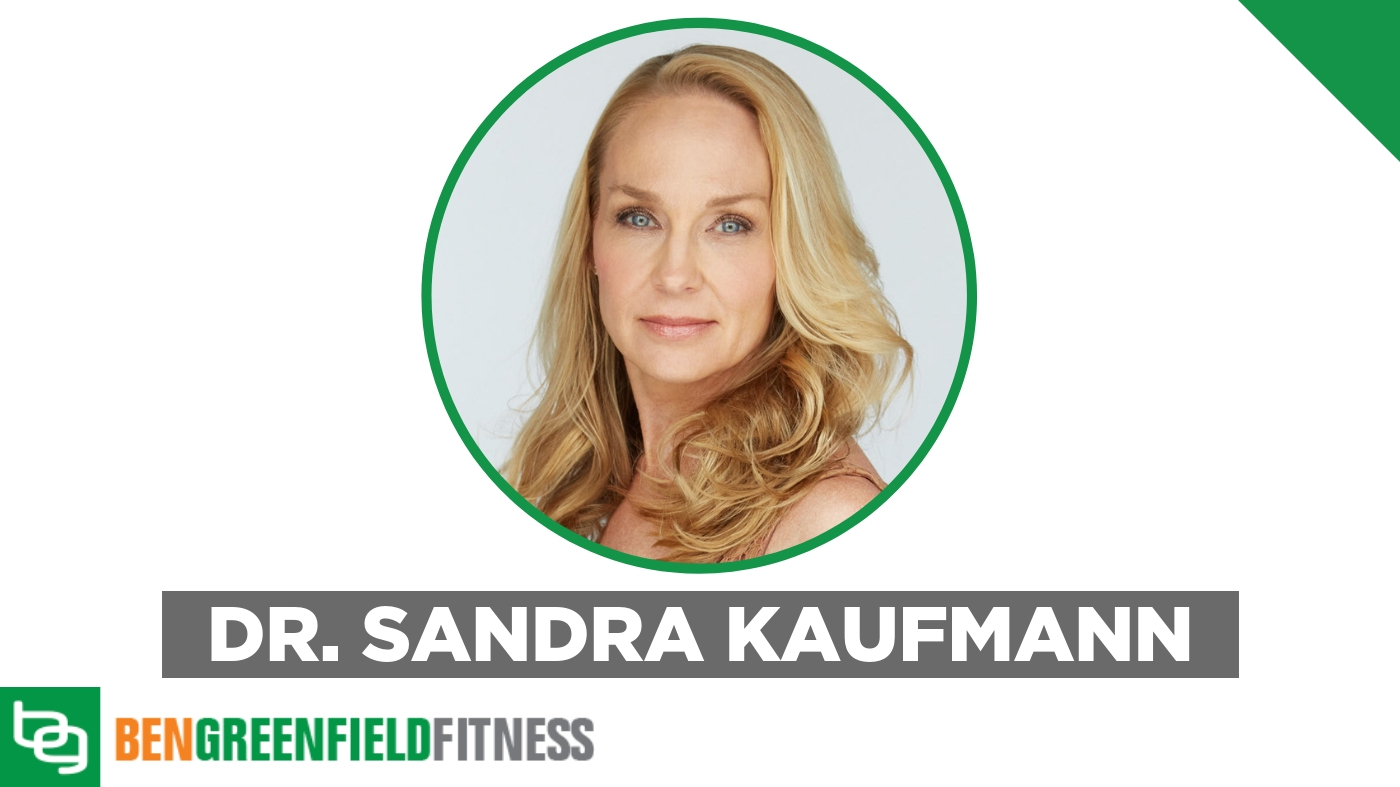
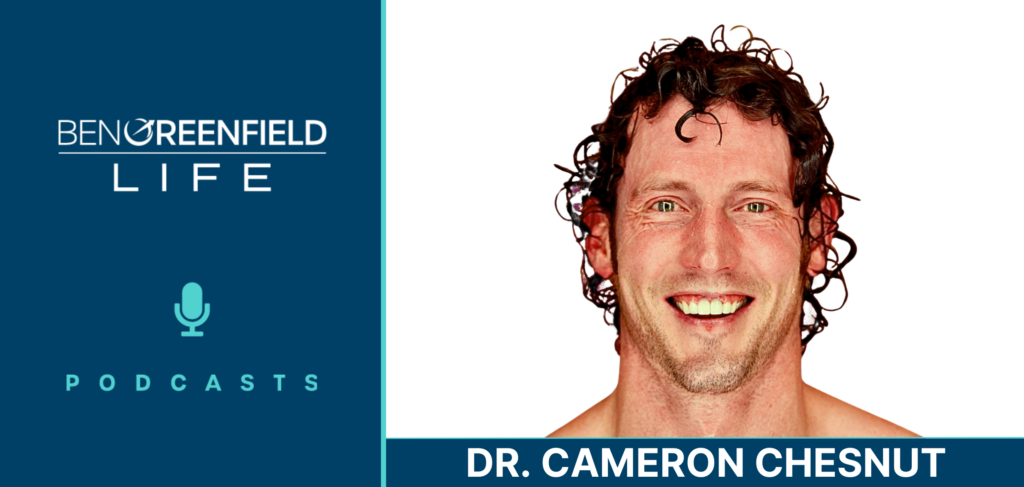

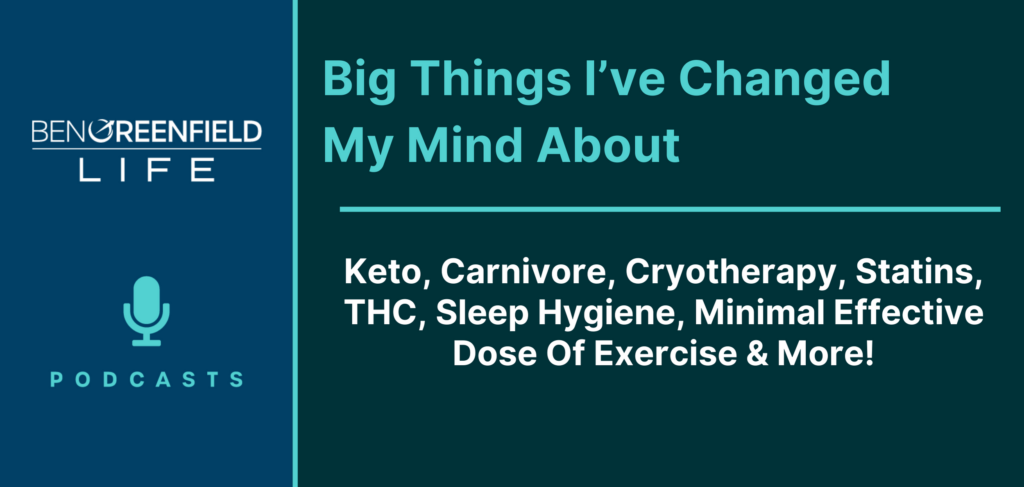





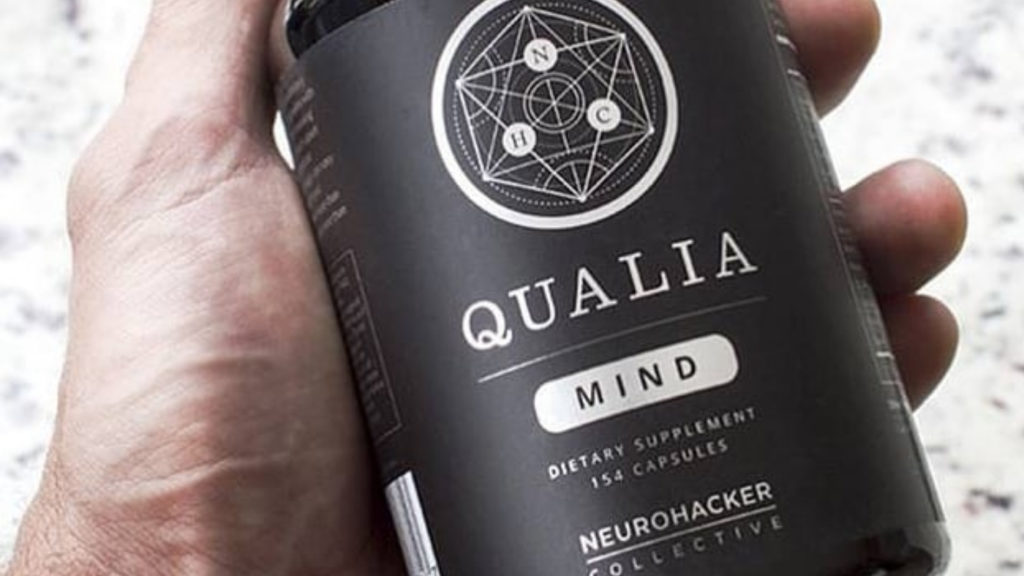

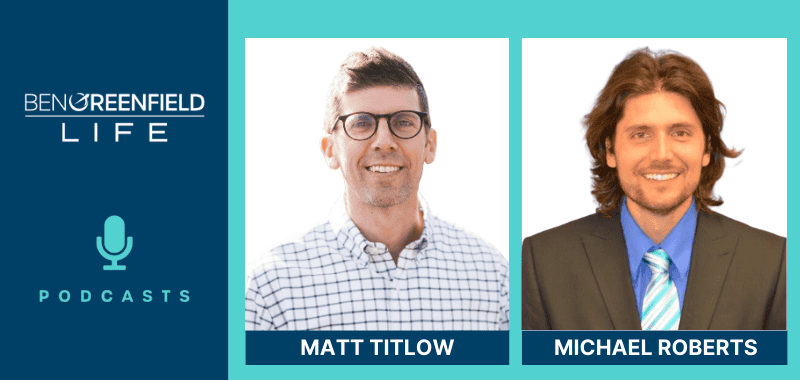

Lot’s of great info in this episode. But since you advocate megadoses of multiple antioxidants, can you please address the potential problem of anti-oxidative stress? i.e. a deficit of free radicals which can interfere with normal immune function and cell communication, etc?
Is it true that astaxanthin never becomes pro-oxidant in the body?
BTW – trying the carnosine eye-drops (Bright Eyes III) and immediately noticed clearer vision overall and a slight, although intermittent, reduction in presbyopia
Howdy
Chris Masterjohn does a video explaining some issue taking
Nicotinamide Riboside and precautions to take. First time I have read/seen any push-back on using NR
https://www.youtube.com/watch?v=bWLv_iTpsXA
Mick
Great podcast! I started recently stated the PANACEA protocol and wanted to see if there is an optimal timing schedule for dosing. I currently do Intermittent fasting and typically end fasting at 10:00 AM and usually do a fasted workout about 7:00 AM.
Eye Drops from Russia. Where the oversight is not a thing! NO THANKS, you lost all cred.
That’s a sad comment, and really shows ignorance and bias against work being done in Russia (and no surprise if you live and are educated in the US, which is extremely insular). Your loss my friend.
Hi! Loved this episode and am so excited to get your book and read it.
I’m curious why you don’t talk about human growth hormone. I’ve been using a homeopathic topical version and have found it to be life changing. Have you studied it?
I have quite a few articles/podcasts. Just do a search on my site for "growth hormone."
One of the best BG podcasts ever & I’ve been listening for many years. You’ve got some great ones, Ben!
I bought what my budget will allow and look forward to the results.We’re vegs, so I included the carnosine. I’m going to let my Vit E and CoQ10 run out! Thanks, Dr Sandy!
Ben
These eye drops she is recommending, Visomitin, contain a toxic preservative, which is what damaged my eyes!!!
I have contacted the company and hopefully they will remove it. I can tell you they do not list it on their website as an ingredient!!
See studies below
Preservatives in Eye Drops . The Good The Bad and The Ugly https://www.ncbi.nlm.nih.gov/m/pubmed/20302969/
The most frequently used preservative, benzalkonium chloride (BAK), has consistently demonstrated its toxic effects in laboratory, experimental, and clinical studies. As a quaternary ammonium, this compound has been shown to cause tear film instability, loss of goblet cells, conjunctival squamous metaplasia and apoptosis, disruption of the corneal epithelium barrier, and damage to deeper ocular tissues.
The Eye Drop Preservative Benzalkonium Chloride Potently Induces Mitochondrial Dysfunction and Preferentially Affects LHON Mutant Cells https://www.ncbi.nlm.nih.gov/pmc/articles/PMC5407…
Preservative toxicity in glaucoma medication: clinical evaluation of benzalkonium chloride-free 0.5% timolol eye drops
https://www.ncbi.nlm.nih.gov/pmc/articles/PMC3817…
BAK has also been associated with multiple adverse effects. Cytotoxicity to the ocular surface was documented as early as the 1970s. Benzalkonium chloride (BAK) is a commonly used preservative in ophthalmic solutions with a broad range of antimicrobial activity; however, this nonspecificity can result in toxicity. Adverse effects attributed to BAK, including conjunctival inflammation and fibrosis, tear film instability, corneal cytotoxicity, anterior chamber inflammation, trabecular meshwork cell apoptosis, cataract development, macular edema, and even systemic effects, have been well documented.
Turn your BAC on preservatives https://theophthalmologist.com/issues/1015/turn-y… BAC: benzalkonium chloride, a surfactant that’s commonly used in eyedrops as a preservative and bactericide. It dissolves bacterial cell membranes – but it can also have a deleterious effect on the ocular surface, and can be allergenic. As this often results in the patient experiencing symptoms of OSD – like itching, irritating or foreign-body sensations (5) – it obviously has an effect on patients’ regimen compliance, and ultimately, IOP control (8, 9).One of the reasons why BAC can cause ocular surface disorders is through goblet cell loss. Goblet cells are the main source of ocular surface mucoproteins and play a central role in tear film stability (10). They have been shown to diminish in number following exposure to BAC-containing topical glaucoma therapies (10, 11), and it’s thought that this leads to decreased mucin production, tear film instability and ultimately, in many cases, OSD (12).
Preservative-free Glaucoma Medications
https://www.glaucoma.org/treatment/preservative-f…
The most common preservative used in eye drops is Benzalkonium chloride (BAK). The effects of BAK have been well studied and it is known to cause inflammation and cell damage.
Corneal toxicity secondary to inadvertent use of benzalkonium chloride preserved viscoelastic material in cataract surgery
https://www.ncbi.nlm.nih.gov/pmc/articles/PMC1771…
Benzalkonium chloride (BAC) also exerts direct cell toxicity, damaging cytoplasmic membranes and cytoplasmic organelles and impeding metabolic cellular function.15 The mode of BAC induced cell death is dose dependent with cell death by necrosis after treatment with high BAC concentrations and by apoptosis with low concentrations.16 At a concentration of 0.01% (the concentration used in most topical ophthalmic preparations) BAC causes immediate cell retraction, cessation of normal cytokinesis and mitotic activity, and degeneration of human corneal epithelial cells within 2 hours.17, 18 BAC is toxic to all ocular tissues,16, 19–22 including the corneal endothelium.
Conclusion: BAC is toxic to the corneal endothelium when used intraocularly, leading to severe striate keratopathy. This cleared in most cases but left varying degrees of residual stromal thickening in all eyes. If penetrating keratoplasty is required the results are excellent. It is well recognized that the preservative benzalkonium chloride (BAC) can cause severe corneal and ocular surface toxicity. Patients with aqueous tear deficiency are particularly … https://books.google.com/books?id=rPFrijRRXhgC&am…
Effect of Benzalkonium Chloride Containing Eye Drops on the Conjunctival Bacterial Flora of Dry Eye Patients https://clinicaltrials.gov/ct2/show/NCT02533154
Although BAC is a preservative with an excellent antibacterial spectrum,
it has also been shown to induce toxic effects to the ocular surface.
Several studies have indicated that BAC may also have altering effects
on the bacterial flora of the conjunctiva.
Corneal Neurotoxicity Due to Topical Benzalkonium Chloride
https://www.ncbi.nlm.nih.gov/pmc/articles/PMC3995…
Conclusion.Topical application of BAK Benzalkonium Chloride to the eye causes corneal neurotoxicity, inflammation, and reduced aqueous tear production.
How long did you use them and what effect did they have?
I don’t see this as an ingredient of the Visomitin drops? Shouldn’t this be listed?
What about the other drops she recommended? Does that have harmful ingredients as well? Thanks for informing us as I was just about to click purchase prior to reading your comment.
I have used both the Visomitin and carnosine eye drops for many years as have countless patients and have have few if any issues other than folks raving about vision improvements. I would never recommend agents if they could cause harm!
Ben, do you have a podcast or info about whether anti-oxidant supplements HELP or HURT athletic performance? Loved the show with Kaufmann, but not sure if all those supplements will hurt performance.
There is a difference between not aging and being an athlete! So you are correct, some agents are NOT for athletes per se. As an athlete, you need to focus on mTOR activation, as an anteater, you want the opposite. As an athlete, you want some free radicals, ( not too many), but again an older person does not.
If you want any specific help, please email me separately!
Thanks Ben and Sandy for the excellent interview. Particularly interested in the concept of “stripping AGEs”. A lab next door to ours study’s AGEs/RAGEs .. one of their grad students was in the lab today so I asked him about being able to “strip AGE products from proteins. He said he didn’t think that’s how it worked … but rather that the formed AGE products bind to RAGEs and then are degraded. Obviously, this is a dynamic process going on all the time, so once a protein gets aberrantly glycosylated (forming AGE product) it’s toast … he said the thinking was that you can “prevent” AGE formation by SIRT1 activation … which activates GLO1 glyoxalase thus preventing AGEs (think you mentioned some 9 steps to form an AGE product). Perhaps that’s what you meant by AGE stripping … that is stripping (or preventing) the glycosylation during those 9 steps before the AGE product is formed??? Think he also mentioned something about transresveratrol and an orange peel extract as the only supplements able to activate GLO1 via SIRT1-activated demethylation (of GLO1; methylation of GLO1 enhances its degradation). Anyways, great stuff, ordering your book … keep up the good works. Thansk, Ed.
If it hasn’t crossed your radar, you might also want to check out fisetin as a senolytic agent, antioxidant, anticancer, etc … (a review from May https://www.mdpi.com/2218-273X/9/5/174)
Thanks for mentioning senolytics!!
I am just about to release my longer than expected diatribe about senolytics! It will be on my website at KaufmannProtocol within the week! ( I’m a little behind from the hurricane)
I may have missed it, so my apologies if I did, but what brand of NAD supplement do you recommend?
https://www.thorne.com/products/dp/resveracel?aff…
There really are only two. Either Nicotinamide riboside by Chromodex or NMN by RevGenetics. I don’t think it really matters which one you take.
Of the compounds listed above and talked about, what would you recommend for a 22 year old male? I am fairly active doing HIIT workouts, heavy lifting, cardio etc.
As a 22 year old, you don’t need much!
I would do a low dose astaxanthin, leucine and Vitamin D for protein synthesis, and some Magnesium threonate for both your muscles and your brain!
I’ve heard that it’s better to take beta-alanine than carnosine as it will be broken down in the GI-tract anyways.
If you are interested in building muscle, alanine is fine. But you need the actual carnosine to transglycate.
Can you clarify what the different benefits would be comparing the Visomitin and Carnosine eye drops?
Another amazing eppy!! Thanks in advance! Love the EAAs btw!!
Carnosine is a transglycating agent, thus it helps the lens with presbyopia and cataracts. The visomitin (SKQ1) gets into retina and helps with mitochondrial health.
Should these be used only for problems with your eyes or are there mitochondrial benefits beyond the eyes?
Hi Sandra,
I had PRK corrective surgery in 2012. I am a 26 year old male now and am starting to have “halos” or “glares” when looking at lights at night. I still have 20/20 vision at the moment but am concerned about these symptoms. I purchased the Visomitin SKQ1 eye drops that are linked in the show notes and also purchased “Relentless Improvement Lubricating Carnosine Drops” from Amazon. I am wondering if it would be efficacious to use these together to treat my symptoms and if so, what is the daily recommended dosing and should i dose them at the same time? Thanks so much for your help and great content. I am also using your Kaufmann Protocol App.
Awesome information… she’s the real deal. Evidence based, knows her research, trustworthy. I only wish I could work with such a bad ass anesthesiologist!!! This episode is a keeper. I will be following her…big fan. Please have her on again as a guest.. thank you for what you do!
Thanks!!
Dr. Sandy
Trying to order those eye drops from Russia…not easy…how does Dr. K do it?
Me too. I placed the order but they never send me information on where to send the payment to. Did you get past it?
Same here, got a reply to email them with choice of payment and haven’t heard back :( really want to try these drops! And Carnosine eye drops link doesn’t link to any specific product on Amazon with only a couple of options available if you scroll through other unrelated products
I just got my Visomitin eye drops from Russia a few days ago. It took about 2 or 3 weeks. They arrived in the USPS mail. Send them an email with your choice of payment and they will reply back. They recommended to me that US customers use Western Union if you don’t want to use bitcoin. They have been very helpful through email. Make sure you ask them how to fill out the Western Union form if anything is not clear to you.
The drops are available on eBay, but I honestly have Russian friends hand carry them for me. Its a bit of a hassle, But I think they are worth it!
Dr. Sandy
Hi Dr. Sandy,
Thank you so much for your podcast with Ben. Fascinating information. I had to listen twice to get most of it. I ordered the Visomitin eye drops and some of your other recommendations. After my first use of the Visomitn, I noticed a slight reaction. I got a little dizzy and nauseous and my eyes hurt a bit for a while. I am wondering is this normal? How often do you take these drops? Do you cycle them or just do them continuously.
Thank you in advance.
I had a similar reaction. Did things go back to normal for you?
Another super insightful podcast – thank you so much. Forever grateful for everything you do.
I was particularly intrigued by astaxanthin and its action as an internal sunscreen. Does it prevent/reduce tanning in the sun as well or does it simply protect against burning? I’d imagine if it prevents burning or would also lessen tanning?
IME it seems to increase tanning. L-tyrosine can also increase tanning/skin protection since it is a pre-cursor to melanin, if I recall correctly.
It's shown photoprotective, antioxidant, and anti-inflammation benefits.
In reading online, I noted that astaxanthin may cause gynecomastia in men . Also, another article noted on one hand studies that” it may hinder an enzyme called 5-alpha-reductase. As a result, it could keep testosterone from changing into the hormone DHT in the body” thereby impeding testosterone and libido. On the other hand, it also noted astaxanthin could increase libido.
You actually don't want excess DHT as it can cause aromatization, hair loss, etc. so there are more pros than cons to this outcome…
Astaxanthin will prevent some of the tanning, which is a skin response to the inflammatory nature of the radiation. It will not block all of it however, and you will still have skin color changes. The ket is that it protects the DNA.
How do you feel about the use of Beta-Alanine to increase Carnosine levels? It’s highly touted in bodybuilding circles.
Where does C60 Charcoal fit into your regimen considering C60 set the record for increasing the lifespan of mice.
Thanks and good health to you!!
Bodybuilders love alanine- but as an anti-aging, you need the carnosine.
In terms of improved endurance is one better than the other?
I was under the impression that beta-alanine was the rate limiting step to your body making carnosine, and that carnosine gets broken down in the GI tract, then needs to be re-assembled. Beta-alanine has been shown to do a much better job increasing intra-muscular carnosine levels. Can you expand on why taking carnosine, which is broken down, rather than providing the substrate to more efficiently make carnosine, is a better approach?
Excellent podcast, my friend! You do a masterful job of teasing out the important information.
One, overarching question about NAD: Are you worried that elevating NAD can fuel cancer?
NAD Metabolism in Cancer Therapeutics (just one of the many recent studies on this): https://www.ncbi.nlm.nih.gov/pmc/articles/PMC6315…
Unfortunately, cancer is something many of your listeners have experienced or will experience in the future. My wife had Thyroid cancer last year and is now in remission. I thought NAD would help her heal at the DNA/mitochondrial level from the stress of the radioactive iodine treatment, but we certainly wouldn’t want to take anything that would fuel cancer. We love the anti-aging benefits of NAD, specifically nicotinamide riboside, but certainly wouldn’t want to increase cancer risk. Doesn’t matter much if you look young if you get cancer.
For your listeners, curious how you reconcile the risk-return profile of NAD?
Very, very much appreciated!
man this is such a solid question and I can see the NAD lovers dodging it like the plague, my best friend has Lymphoma and all the doctors stress the importance of not using this molecule, I would love to see studies on this
I’m interested in implementing the Panacea protocol for the anti-aging benefits but I’m also a 39 year old male, hard-gainer trying to build muscle.
I’m using the Minimum Effective Dose Excercise protocol taught in the Longevity Blueprint – so I’m not a competitive athlete.
Do I need to be concerned with any of the compounds listed in the Panacea delivering enough of an anti-oxidant effect that they would be blunting the hormetic effects of exercise?
If so, is there a way to time them – a few hours before exercise for example – where I could both leverage anti-aging benefits AND build muscle?
Excellent question! This depends on the degree of workout and the number of anti-oxidants you take. You need some radicals floating around, just not too many.
Listened 3 times….loved this!
Hi Ben!
Great podcast with this most amazing and intellegent woman, Dr Sandra Kaufmann- for putting it all together to help us navigate and understand better this longevity and wellness journey. I’m excited to apply her recommendations via her app into my own life. Thanks again Ben for all that YOU are bringing into this world to help others enjoy their lives. Thank you Dr Kaufmann for your amazing work as well. I’ll continue to follow your work as I journey along.
Sincerely and in best of health,
Rachael
Has anyone tried using the app? I paid for the 1 month subscription but I cannot seem to get past the subscribe step. I am told I am already subscribed but there is nothing else to do but subscribe in the app.
There are similar comments on iTunes. I’d love the Dr. to give us an update on the app before we spend money on something that doesn’t work.
Yep, the reviews for the app scared me away. Worst app reviews I have ever seen.
I am very sorry to say that my App developer has let me down. A certain percentage of people cannot get past the subscription page. We are working diligently to repair this.
Again…I am terribly sorry for the inconvenience!
Dr. Sandy
Hey Ben,
I use Thornes Resveracel daily. I love the product because it provides methyl groups along with the NR. I believe that the product would be far better if you replaced resveratrol with pterostilbene. It is a more potent sirtuin activator and it is already methylated. NR as you know requires methylation, and adding another compound that requires methylation creates unnecessary stress on the body especially for those with the MTHFR gene mutation. I hope you will consider my suggestion because I know you take great pride in providing the most quality science based supplements on the market. Thanks for always being such an honest dude, I wish you and your family the best!
What is the “ aging athlete” protocol? I could not find it on her site. Thanks in advance
Following!
This is a bit complicated. Email me separately and I can send you information.
Dr. Sandy
[email protected]
Thinking about taking a NR supplement. Any thoughts about Tru Niagen vs. Elysium? Have read the pterostilbene can increase LDL?
Check out my podcast on TruNiagen: https://bengreenfieldfitness.com/podcast/anti-agi…
This is a good question and I’d like to know as well. Here’s what I found:
https://www.ncbi.nlm.nih.gov/pmc/articles/PMC4099343/
After taking pterostlibene supplement for 6 months, I checked my LDL level and it increased – not suggesting by any means that pterostlibene caused this – however what I am suggesting is that all things being equal – meaning – no changes to my diet – no changes to my exercise program – etc. it may suggest that pterostlibene did indeed increase my LDL level. I will stop taking pterostlibene and check my LDL in a few months to compare results. But I do think there needs to more discussion on this topic.
Based on my research, I’d recommend taking NR without TMG, since NR is a methyl group robber (very scientific term for it).
I also dove deep into Doc’s book and put together a quick analysis which supplements gave you most bang for your buck (based on supplement efficacy aka overall impact and average price)
The best ones turned out to be: Aloe Vera, ALA, Curcumin, EGCG, Metformin, Resveratrol and Yerba Mate
TMG?
TMG = trimethylglycine
If NR is a “methyl group robber”, why would you recommend taking it without a methyl group donor (TMG) ?
Love your podcast. Not sure what to do. 61. Overweight. Bad knee. Mildly depressed. Not much money. Help. So much info. No idea where to start or where to go! Any advice? Hopeful!
Janer
Hi Janet, the Kion Facebook Community is the perfect place to start. https://Facebook.com/groups/GetKion
Send me your medical info to my email and I’ll help you make a protocol.
Dr. Sandy
[email protected]
This is Dr. Sandy- send me an email [email protected] with your age, medical issues, things you are concerned with and any agents you are already taking and I will help you to create the perfect plan!
I bought this book several months ago and immediately implemented my own protocol from it. Very informative read and makes it easy to take action. Great book. One thing I got concerned about, though, was the idea of using carnosine in eye drops. Sounds good in theory, but all the eye drops with carnosine I found (NAC drops, etc) use benzene to deliver carnosine to the tissues. I don’t know about you, but putting benzene, a toxin, in your cornea/lens sounds like a really bad idea. Are there any long term studies to show that it’s safe??? And can it reverse presbyopia or is it just to clear cataracts? Because if it’s just for cataracts, it doesn’t make any sense to use it if you don’t have one. Anyone know a brand that doesn’t use benzyl alcohol?
Had cataract surgery and posterior capsular opacification follow-up treatment — which supposedly cannot reoccur, yet I see “gray” in one eye — so following!!
Outstanding episode! Thanks Dr K
Instead of the Metformin which requires a prescription, what about BERBERINE?
Good option, read more here: https://bengreenfieldfitness.com/article/nutritio…
Berberine is great for glucose issues, but it does not cover the other aspects of anti-aging. So if you are going to use this, just use other agents as well.
Dr. Sandy
Berberine is useful for glucose control, but it is not as potent as Metformin. As well, it does not have the other positive effects that Metformin carries.
Hi there,
Thx for this great podcast.
I am living in a country where Metformin needs a prescription difficult to obtain if not sick.
I have no choice but Berberine. Could you Sandra please tell me what other agents would balance this Metformin vs Bereberin difference ?
Thanks again
Steve